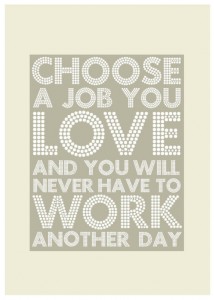“The person born with a talent they are meant to use will find their greatest happiness in using it”
(Johann Wolfgang von Goethe)
Unusually for me, this post is not about job search, interviews or other employment-related issues. It is about my experience of attending a live TEDx conference at Warwick University on 9th March.
In my spare time, I enjoy listening to inspirational, educational TED talks and normally select the ones directly relevant to me and my interests – principally business and economics. For instance, a few days ago, I listened to a talk by Simon Sinek on how great leaders (both companies and individuals) can inspire action and innovation, where he discussed his concept of the ‘Golden Circle’. I find that these business-oriented talks are a perfect way to update my knowledge in the most time-effective manner. In a way, each talk is like a ‘mini MBA’ on a particular subject compressed in twenty minutes. I deeply admire the ingenuity, creativity and talent of many of the presenters I have listened to.
The conference I attended at Warwick covered areas I would not normally choose to listen to on TED.com. The main theme of the day was ‘Building Bridges’ and it included a number of talks on the scientific issues, such as the human genome and its link to various genetic and life-threatening diseases, such as cancer and MS. My main takeaway from the talk given by Gilean McVean was that humans are the least diverse of the species on Earth and there is only tiny variation in our genetic makeup whether we are from Europe, Africa or Asia.
There were also speakers talking about inefficiencies and delays in aid provision in war-stricken parts of the world, such as the former Yugoslavia and Africa. I couldn’t believe my ears when I heard that it takes on average 13 weeks for humanitarian aid to be delivered to those in need!
In a totally different vein, a blind musician Derek Paravicini played several amazing pieces on the piano – a true musical genius who, despite his autism, taught himself to play and compose music and is now an internationally acclaimed pianist. Have a look at his website and listen to some of his masterpieces: http://www.sonustech.com/paravicini/.
I was mesmerised too by the incredible photographs of Fabian Oefner who has managed to capture the sound waves coming from a speaker in an image so usual that when I saw it for the first time, I thought it was a photo of a volcanic eruption! You can see for yourself here: http://www.fabianoefner.com/64838/556897/projects/dancing-colors.
During the whole event, the only talk that was related to my original interests was the one by Jasper McMahon – a co-developer of a new economic model called ‘now-casting’. The model is designed to address the inefficiencies and propensity for error of ordinary forecasting models of GDP and other economic variables.
I have stepped of my comfort zone by listening to the talks I would not normally listen to and it was an unbelievable experience completely worth the time and effort. For me, this amazing conference was a proof that the world is still full of innovative, passionate and talented individuals with strong principles and incredible ideas – all that is required from us all is to listen to them and try to spread their word to improve and better ourselves and the world we live in.
Dasha Amrom




Follow Us!